Aberdeen City Carers Strategy 2023-2026
"A City for all Carers"

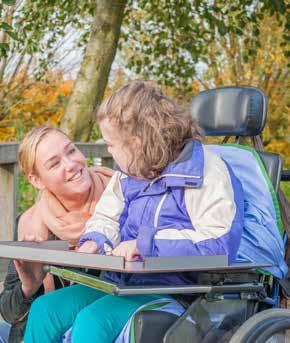
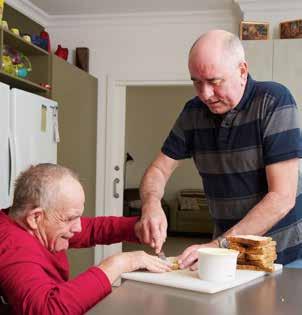
Summary


Our plan for supporting all Carers in Aberdeen City




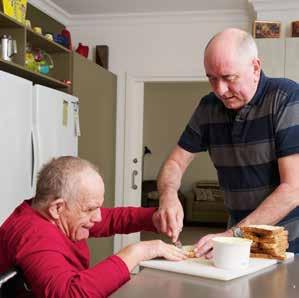



Aberdeen City Carers Strategy 2023-2026
"A City for all Carers"



Summary


Our plan for supporting all Carers in Aberdeen City







We are delighted to present this summary of our new Carers Strategy for Aberdeen City. Carers can be both Adult and Young Carers. Carers play an incredibly important role in supporting the people of Aberdeen to remain independent, enjoy life, endure ill health and they also provide emotional support to those they care for. This is often in very challenging circumstances. 4
Whilst presented by the Aberdeen City Health and Social Care Partnership (ACHSCP) this Strategy has been informed by collaboration and involvement of multiple partners across the City and, most importantly, Carers themselves. There are strong links between this strategy and the ACHSCP Strategic Plan 2022-2025, The NHS Grampian Plan for the Future and Community Planning Aberdeen’s Local Outcome Improvement Plan (LOIP).
The Strategy focuses on 4 Strategic Priorities.
PRIORITY 1
Identifying as a Carer and the first steps to support.
PRIORITY 2
Accessing advice and support.
PRIORITY 3
Future Planning, decision-making and wider Carer involvement.
PRIORITY 4
Community Support and services for Carers.
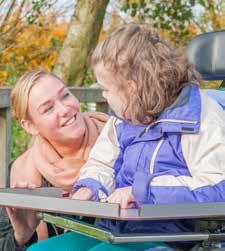
This summary is accompanied by a more detailed Carers Strategy Document and Action Plan. The detailed strategy includes lived experience examples and examples of Carers Support in practice.
This Strategy is an action within the ‘Caring Together’ aim of the ACHSCP Strategic Plan. How this fits together with wider health and social Care priorities is demonstrated in the ‘Plan on a Page’. Carers Strategy Aim;
“We will demonstrate overall improvement in all four priority areas by receiving a minimum of 40% positive responses to our Carer Experience statements (what we want Carers to be able to say about their support) when surveyed in 2026.”



ALL
Aim: We will demonstrate overall improvement in all four priority areas by receiving a minimum of 40% positive responses to our Carer Experience statements (what we want Carers to be able to say about their support) when surveyed in 2026
Aberdeen City Strategic Plan Priority - ‘Caring Together’ Strategic Enablers - WORKFORCE - TECHNOLOGY - FINANCE - RELATIONSHIPS - INFRASTRUCTURE
These enablers are the key resources which will support the implementation of the Aberdeen City Carer Strategy 2023 - 2026
PRIORITY 1
- Identifying as a Carer and the first steps to support
“I
PRIORITY 2
- Access to advice and support for Carers
we want Carers to be able to say about their Support
am supported to identify as a Carer and am able to access information about the support I may need.”
What will each priority focus on?
This priority focuses on the importance of carer’s being recognised by themselves and others and having an easy entry to support.
PRIORITY 3
- Supporting future planning, decision making and wider Carer involvement
“I am supported as a Carer to Manage my Caring Role.”
This priority focuses on support and advice which is universally accessible to anyone who identifies as a Carer in Aberdeen City.
What actions will we take to achieve these priorities?
1.1 Proactively create opportunities for more people across Aberdeen City to identify as a Carer.
1.2 Improve the knowledge of Carer’s Rights and Carers support services with the Education, Health and Social Care Workforce.
1.3 Improve the Knowledge of the wider Community of Aberdeen City of Carers Rights and Carers Support Services
2.1 Ensure Young Carers have access to a Young Carer Support Service who can provide individual advice and support.
2.2 Ensure Adult Carers have access to an Adult Carer Support Service who can provide individual advice and support.
PRIORITY 4
- Community support and services for Carers
“I am respected, listened to and involved in the planning and development of the services and support which I and the person(s) I care for receive.”
This priority focuses more specifically on support with future planning as a Carer and accessing more intensive support where the caring role requires this both for the Carer and the Cared for person. It also includes how carers can be involved in the wider development of support for carers.
“I have a sense of belonging and a life alongside caring, if I choose to.”
This priority is focussed on the practical supports available to Carers to support them to be well connected to their communities and have a life alongside their caring role including hobbies and employment. There will be a strong emphasis on Carer choice here and that no one size fits all.
3.1 Young Carers have the opportunity to be leaders in planning their own support (Future Planning).
3.2 Young People with Carer responsibilities experiencing transition from Child to Adult Services have access to individual advice and support to enable future planning.
3.3 Ensure Adult Carers have the opportunity to be leaders in planning their own Support (Future planning).
3.4 Carers have the opportunity to be involved in planning the support of the person they care for.
3.5 There are opportunities to access independent sources of support for both the Carer and the Cared for Person.
3.6 All Carers have opportunities to be involved in decision making about Carer Support Services, the Carer Strategy and the wider work of the ACHSCP (Participation and Engagement).
4.1 Promote a culture of Creativity to encourage innovative approaches to Carer Support.
4.2 Support the ongoing development of a range of mainstream supports and services to enable Carers to receive a break from Caring in line with the proposed ‘right to a break’ within the National Care Service Bill.
4.3 Continue to develop a range of support options for Carers, where the cared for person has high level needs, which allow choice and control in line with the proposed ‘right to a break’ within the National Care Service Bill.

The Act represented a shift from previous reactive approaches to Carers support to one with Prevention at the centre introducing new rights for Carers and duties for Local Authorities and Health and Social Care Partnerships.
The Act brought in new duties and powers in relation to:
• Adult Carer Support Plans and Young Carer Statements
• Eligibility Criteria
• Carer Involvement
• Local Carer Strategies
• Information and Advice
• Short Breaks Statement
The Act is accompanied by statutory guidance and the Carers Charter which outlines the key rights Carers have.
The Scottish Government have developed a Strategy this highlights important areas for development of support for Carers which have been incorporated within this Strategy. We also expect legislative change as a result of the National Care Service (Scotland) Bill. This Bill is informed by the Independent Review of Adult Social Care which highlighted a range of recommendations for social care in Scotland. Our Action Plan for this strategy will be responsive to any additional actions as a result of this.
This Strategy is the second one for the ACHSCP. Our strategy is for all Carers who provide support in Aberdeen whether they be Young Carers caring for siblings or parents, Parent Carers caring for children of all ages or Adult Carers caring for family, friends or neighbours.
Responsibility for developing a Carer Strategy for Aberdeen City sits with the Aberdeen City Health and Social Care Partnership (ACHSCP) however this strategy represents a combined approach to support for Carers which connects across various partners including those within Aberdeen City Council, NHS Grampian and the third sector. Carers come from all walks of life and will come into contact with a range of health, social care and education organisations. For example, Young Carers and Parent Carers are in frequent contact with Education and Children’s services provided by Aberdeen City Council. Support to Carers is also an important element of the Aberdeen City Local Improvement Plan (LOIP) which includes a project aimed at improving the experience of Adult Carers. This is also incorporated within our Action Plan.
“We need Organisations to listen when we ask for help.”
Aberdeen Carer
A Carer Strategy would be nothing without the perspective of Carers themselves. There have been many challenges to engaging with Carers during a pandemic and we are grateful to those Carers who have taken the time to contribute to this Strategy through various engagement sessions, surveys and in more formal roles, including our Integration Joint Board (IJB) Carer Representatives.

Under the Carers (Scotland) Act 2016 each local authority must establish and maintain an information and advice service, covering a range of mandatory areas for carers either resident in that local authority area, or caring for someone in that local authority area. There are currently two support services in Aberdeen City which are contracted to provide a dedicated to support service for Carers 1 .
Barnardo’s Aberdeen Young Carers Service supports young carers in Aberdeen City to live a happy and fulfilled life alongside caring. Our aim is to develop the service to support young carers with individual identified needs, reduce the impact of caring, allow them to receive a short break from caring, help to reduce social isolation, improve wellbeing and increase their resilience.
Barnardos have a range of support opportunities on offer for Young Carers including.
• One-to-one support.
• Advocacy on behalf of the Young Carers or their families to support them in having their voice heard and needs recognised with other professionals, schools etc.
• Volunteer Befriender’s.
• A range of support groups for children of all ages, including monthly LGBT+ groups for 11-14 and 15+ age groups.
• Access to music, sports and arts therapy and groups including during school holidays.
• Developing partnerships with the community and third sector to support Young Carers Financial support opportunities through the Aberdeen City Council Young Carers Grant, Social Security Scotland, Young Scot and other funding platforms for both Young Carers and their Families.
• Signposting to other organisations and professionals within Aberdeen City and Nationally to gain tailored support for Young Carers and their Families.
• SVQ in Health and Social Care for Young Carers over 16 or Adult Carers in partnership with Bon Accord Care.
• Weekly Adult Support Group for Adult Carers, Cared For and other adult family members involved with the Young Carer to receive peer support and information.
• Volunteering opportunities for Young Carers over 16 and adults involved with the service.
• Provide training to partners and schools on identifying and how to support young carers, introducing staff to the ‘Think young carers’ toolkit.
Aberdeen Carers Support Service, based at 37 Albert Street, Aberdeen, is a co-produced service working in partnership with carers. They offer all carers who register with the service an Adult Carer Support Plan which can give an accurate reflection of the care role provided and record any negative impacts it might be having on the carer’s health and wellbeing. Together, Family Wellbeing Workers, Carer Advisors and carers can then record the outcomes they would like to achieve and work together to meet them.
The service produces a quarterly newsletter with input from carers and information for carers. Online training is offered as well as support groups for parent carers, a men’s group, a women’s mental health group, a health and wellbeing book group and dementia support group. The service now has a new Respitality Bureau that carers can call on 01224 914035 or visit in person during office hours where the staff will be able to look at carers’ break funding such as Time to Live grants or Respitality breaks.
Quarriers also offer an Enhanced Service for Adult Carers. The main aim of the enhanced service is.
• To work innovatively to co design services which enable the early identification of carers and ensure accessibility to services and information to a wide range of people.
• In a situation where there is an added complexity. This could be the complexity of the cared for person, carer or where there is a co-dependency within a relationship between carer and cared for person, and more intensive and specialist support is required.
• Support carers who could present with complex roles which will vary but could include Complexity due to substance or alcohol misuse or Complexity due to mental health condition which may include dementia.
• Connect and provide support to harder to reach, caring situations.
• Connect with and provide the necessary support to carers to achieve individual outcomes through a carer support plan where appropriate.
For carers who are online they have a Facebook page at www.facebook.com/aberdeencarerssupportservice and you can access useful information through the Virtual Carers Centre at www.carers.quarriers.org.uk/. If you would like to register, please call on 01224 914036.
The Carers (Scotland) Act 2016 defines who is considered as a Carer in Scotland. The Scottish Government’s Carers Charter further describes the caring role as follows.
You are a 'Carer' if you provide (or intend to provide) care for another person – but not: -
• if this is only because of that person's age (where they are under 18); or
• if you are caring because you have a contract or as voluntary work.
The previous definition for being identified as a 'carer' does not apply. You can be caring for someone for any number of hours. You do not need to be providing a substantial amount of care for someone on a regular basis.
You are a 'young carer' if you are a carer (as above) and are also:
• under the age of 18; or
• 18 or over, but still attending school.
You are an 'adult carer' if you meet the criteria for a carer above and are aged 18 or over, and not attending school.
A kinship carer (usually a relative or close friend looking after a child in place of their parents) can be a carer under the Act, even where they have a kinship carer agreement with the local authority. This is only for kinship carers who meet the other requirements of the meaning of 'carer' above, so not where the care is simply because of the child's age.


Sometimes Carers (as defined in the Act) are referred to as ‘Unpaid Carers’ to show a difference between those the Act refers to and a paid carer role. For clarity, this strategy refers to ‘Carers’ as those who meet the definition as above. We also refer to the person being cared for as the ‘Cared For person’. In other documents the Cared For person may be listed as the Supported Person, Patient, Service User, Adult or Child. Many people who meet this definition are not aware that they do and may not see themselves as Carers. Often, they consider their role as simply part of being a spouse, parent, child or friend. Supporting those who are eligible for support to identify as Carers is highlighted in Priority 1.
Being a Carer can have multiple impacts both positive and negative. Caring relationships are varied and span all ages, communities and socio-economic groups. Some examples include but are not limited to:
• Caring for a partner or spouse living with dementia
• Caring for a child with profound and multiple disabilities
• Caring for a parent living with mental health issues
• Caring for a sibling living with disabilities
• Caring for a friend living with substance misuse issues
• Caring for your older parent or spouse when you yourself are older and have your own need for care and support
Many of our Carers may have their own needs beyond their caring role.
The experience of Young Carers can vary from Adult Carers. The Carers Census Scotland outlined that nationally, “in 2020-21, adult carers were more likely than young carers to experience impacts on their health (56% compared to 27%), finance (34% compared to 20%) and future plans (43% compared to 19%). These differences were slightly more pronounced in 2019-20. Young carers were more likely to experience an impact on their emotional well-being due to their caring role than adult carers in both years. In 2020-21, data suggested that 89% of young carers experienced an impact on their emotional well-being, compared to 74% of adult carers”.
It is difficult to come to an accurate figure for how many carers there are in Aberdeen. Our available estimates are based on figures gathered before the COVID-19 pandemic. It is also important to note that many Carers travel into Aberdeen to care for a friend or loved one. The responsibility to support them lies with us as the home of the cared for person.
The 2011 Census estimated that there were 222,793 people living in Aberdeen and that 15,571 are Carers. With 6,229 stating that they provide more than 20 hours of unpaid care per week. The Scottish Health Survey (SHeS) presents that 11% of Aberdeen’s population identify as a Carer. This is lower than the national average of 15%. This would take us to a figure of 24,507. Of these numbers there are estimated to be approximately 2000 Young Carers.
There is a significant gap between these estimates and those Carers known to services in Aberdeen.2
Adult Carers open to Quarriers Adult Carer Support Service (including enhanced support service) 803
Adult Carers known to Social Work services (with an adult Carer Support Plan in Place) 3
Young Carers open to Barnardos Young Carer Support Service 135
Young Carers known to Children's services (education) 51
National statistics indicate that women are more likely than men to report providing regular unpaid care. This is reflected in our local data with 58% of supported Young Carers identifying as female and 77% of supported Adult Carers identifying as female.
Aberdeen City has a diverse population. In 2021 Community Planning Aberdeen published, ‘Aberdeen City: Population Needs Assessment’, which outlines the diverse make up of our population. Making stronger links to communities is identified in our action plan and will be taken forward with partners from our commissioned support services and the ACHSCP’s Equality and Human Rights sub-group. This includes, but is not limited to; Minority ethnic communities, those experiencing low income or poverty and LGBTQ+ communities. It is important to recognise that Carers can often experience multiple additional challenges in relation to inequalities due to the impact of their caring role.
The principles of equality, diversity and human rights are the basic rights for all carers. Carers reflect the diversity of Scotland's population. We will work to ensure that carers are aware of their rights under this legislation and that no carer is disadvantaged due to age; disability; gender reassignment; marriage and civil partnership; pregnancy and maternity, race; religion or belief; or sex or sexual orientation, in line with the Equality Act 2010.
Whilst our statutory responsibility lies with supporting Carers who care for people in Aberdeen, we also recognise that many of our own workforce are also Carers, and this can have a significant impact on their wellbeing. This is considered within the ACHSCP Workforce Plan (Link to be included when published).
“Many people have deteriorated seriously during the pandemic and are less able to partake in activities.”
Aberdeen
City Carer
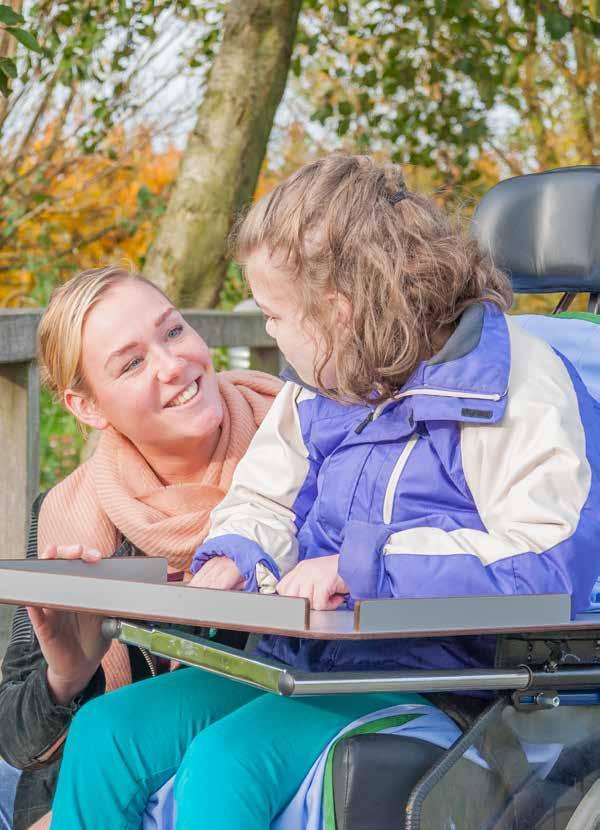
The COVID-19 pandemic had a substantial impact on all Carers. The stopping of many face-to-face support services during lockdown removed the ability of Carers to access support and breaks from caring which they relied upon to maintain their caring role. Subsequent lockdowns and understandable concerns for the potential of catching COVID-19 also made it less likely that Carers re-engaged in face-to-face services when they were available.
For Young Carers the closure of Schools had a big impact on their education and emotional wellbeing leading to them missing out on opportunities to socialise, learn and have a break from their caring role.
A Carers Trust survey published in July 2020 on the impact of Coronavirus on Young Carers showed a steep decline in the mental health and wellbeing of the hundreds of thousands of young people across Scotland who provide unpaid care at home for family members or loved ones, both Young Carers and Adult Carers, particularly where the cared for person and substantial support needs.
For those Carers and cared for people with health conditions the pandemic has led to longer waiting times for treatment and in some circumstances poorer health as a result.
The legacy of the pandemic may also result in a new group of Carers who are supporting someone with the symptoms of Long Covid. The longer-term impacts of this and impact on Carers is not yet fully understood but we will be required to consider how to best support this group.
An unexpected impact of the COVID-19 restrictions, reported by both staff and Carers included an increased understanding and use of technology. This facilitated communication, information sharing and supporting and connecting with others.
We have engaged with Carers in a variety of ways to inform this Strategy including face to face, online, via surveys, through partners and in 1:1 discussion.
The main themes identified by Carers were.
Social Isolation & lack of social activities
Poor Mental Health (including worries about the future)
Accessing day support and Day Care
The Impact of COVID-19
Taking a break is dependent on meeting the needs of the Cared for person. If they are not met. The break isn’t possible.
Access to breaks (including respite)
Communication challenges
Financial Pressures
Hospital Discharges
Being recognised as an equal partner in planning support
Coping with the caring role (including the emotional impact of caring)
Tiredness and a lack of time for oneself
Opportunities for social activity and exercise
Support from extended family
Support from other professionals (including GPs)
Experiences of those who have accessed the Adult Carer support service
Increased Young Carer awareness amongst professionals
Lack of awareness of dementia and other conditions
Accessing the right services (including social work, health, and Mental Health support)
Access to advice and information
Accessing the right services (e.g., social work, health and Child and Adolescent Mental Health CAMHs support)
Think young Carers ToolkitSupports adult professionals to identify and support Young Carers
Life as a Young Carer videocreated in a partnership with SHMU to supports professionals and the public to be aware of Young Carers and empathise
Access to local Young Carers fund
Support from some education staff
Lacking the confidence to tell someone they are caring for someone else
Social Isolation & lack of social activities
Communication challenges
Tiredness, less time for school, activity, and self-care
Social Isolation & lack of inclusive social activities
Accessing support and appointments
Variable understanding of Young Carers needs amongst professionals
Financial Pressures
Multiple challenges due to being different (including LGBTQ+ young people)
Struggling with mental health and concerns about the future including bereavement, grief, and loss
The Impact of COVID-19
This priority focuses on the importance of carer’s being recognised by themselves and others and having an easy entry point to support.
We recognise that there is a knowledge gap amongst our workforce and the wider public in Aberdeen City about Carer rights and Carer Support and this requires targeted action to ensure people are kept informed.
What we want Carers to be able to say “I am supported to identify as a Carer and am able to access information about the support I may need.”
There is a significant gap between these estimates and those Carers known to services in Aberdeen. 4
Many Carers across the City are not being identified and therefore not able to access the support available. People need to know that they are a Carer before appropriate support can be made available. Respondents to our workforce survey highlighted that there are interlinked challenges in taking the first steps to support. A recent survey of our workforce indicated that encouraging people to state they are a Carer is not enough. Everyone needs to understand what their rights are and what support could be available so they can make an informed choice. Those working with Carers also need to be proactive in identifying Carers and bridging the gap to support.
We also recognise that Carers will inevitably reach out for support at times of crisis or emergency. Priority 3 highlights the importance of emergency planning on an individual basis however having a workforce who are responsive to unexpected Carer crises and emergencies is also central to our wider approach to awareness raising on support for Carers.
Information suggests that Young Carers are most likely to be identified by Education. Adult Carers are most likely to self-refer. The most common reason for Young Carers to seek support is due to the physical health of the cared for person. Within Adult services it is also physical health with Dementia in the cared for person being particularly prominent.
“The biggest impact is because of the difficulty finding out information about support available. Then even when knowing that ‘support’ is available, accessing support is difficult.” Aberdeen City Carer
Information from engagement with our workforce indicates that awareness of the support services available is not consistent.5 Carers told us that it was often difficult to navigate the system and understand how to get support. Many people were not aware of the change of adult support provider, to Quarriers Carer Support, and more awareness of this change and how this support is accessed is required. We want to encourage all those who come into contact with carers, essentially everyone, to take a Carer sensitive approach and have an awareness of the many challenges Carers can face.
In order to ensure Young Carers are identified and supported Aberdeen City Council have developed a range of additional resources to support Young Carers including a ‘Think Young Carer’ : A multi-agency Toolkit to support Young Carers.
This video developed by Young Carers in Aberdeen highlights the many struggles faced by Gary when trying to juggle his caring responsibilities and school.
Gary’s Story Video
It can be used to prompt thinking and discussions with professionals and members of the community on how they would recognise and better support Young Carers.
This priority is about Carer specific support and advice which is universally accessible to anyone who identifies as a Carer in Aberdeen City.
Priority 2 focuses on developing our support services with those who access them. We know that those who currently use the services find them supportive however we also know that many Carers do not access them. We need to be informed by new Carers on how to adapt our offer of support, as needed, to meet the needs identified.
During the pandemic work took place to develop information resources for Carers and the wider community. The AGILE booklet and web page. provides a range of important information on what is available locally for Adult Carers and is translated into a range of languages. Ensuring suitable information is available for all Carers is essential and we will work to improve our range of accessible information.
ACTIONS
1.1 Proactively create opportunities for more people across Aberdeen City to identify as a Carer.
1.2 Improve the knowledge of Carer’s Rights and Carers support services with the Education, Health and Social Care Workforce
1.3 Improve the Knowledge of the wider Community of Aberdeen City of Carers Rights and Carers Support Services
We need to ensure Carers have access to appropriate advice and support to enable them to be supported in their caring role. The support required will vary significantly depending on the needs of the Carer, their age, community, family circumstances and stage of life.
What we want Carers to be able to say
“I am supported as a Carer to Manage my Caring Role.”
Our Commissioned support services do not operate in isolation and support for Carers comes in many forms including from those working in Health and Social Care, Education, the third sector and the wider community. Important information on a range of support options is available from the Scotland’s Service Directory and Aberdeen Council of Voluntary Organisations (ACVO) who are our third sector interface.
The range of areas where Carers, including Young Carers, may require support include.
• Information on their rights, including those set out in the Carer’s Charter
• Income maximisation and links to employment advice (For example Council Tax discount)
• Education and training
• Advocacy/Brokerage
• Peer support
• Support with LGBTQ+ issues
• Health and wellbeing advice, including specific support with Mental health
• Bereavement, grief and loss support
• Emergency care planning
• Information on Future care planning, including the development of Adult Carer Support Plans (ACSPs) and Young Carer Statements (YCS).
• Signposting to a specialist support service, e.g., Legal advice, Domestic Abuse support
• Substance use support

2.1 Ensure Young Carers have access to a Young Carer Support Service who can provide individual advice and support
2.2 Ensure Adult Carers have access to an Adult Carer Support Service who can provide individual advice and support
This section is specifically on support with future planning as a Carer both for the Carer and the Cared for person. It also includes how carers can be involved in the wider development of support for carers. Recognised Challenge
Priority 3 focuses on ensuring Carers are involved in decision-making processes both personally and strategically (by being involved in decisions made by the ACHSCP which affect Carers). Carers continue to feedback that they are not always involved in decisions which impact them and this needs to improve. A Carers’ reference group was an aspiration of our first Strategy, and this was stalled due to the pandemic. In order to ensure all Carers voices are heard this is a key action.
We have split this priority into three key areas.
• Planning Support for the Carer
• Planning Support for the cared for person
• Carer involvement in developing and informing Carers Services and the work of the wider ACHSCP
What
we want Carers to be able to say
“I
am respected, listened to and involved in the planning and development of the services and support which I and the person(s) I care for receive.”
All Carers must be offered an Adult Carer Support Plan (ACSP) or a Young Carer Statement (YCS) in accordance with the Carers (Scotland) Act 2016. The expectations of ACSPs and YCSs are included within the statutory guidance on the Carers (Scotland) Act 2016. Carers will be offered support to complete a support plan (ACSP or YCS) and an emergency plan. An emergency plan can be part of an ACSP or sit separately. The completion of an emergency plan allows for an anticipatory focus and allows the Carer to consider the support, they and the Cared for person may need in the advent of an emergency which impacts on their ability to provide care.
An Adult Carer Support Plan provides a tool to support Carers to identify their own personal outcomes (goals they want to achieve) and identify their needs as a Carer. They enable Carers to focus in on what is important to them and what support, if any, they need to continue in their caring role. They may also support Emergency planning. We have a duty to offer an ACSP, Carers are not required to complete one however they are encouraged to do so to support them in identifying what is important to them.
The Young Carer Statement provides an opportunity for the young person to consider their personal outcomes (goals they want to achieve) and identify their needs as a Carer. An important distinction is that is intended to ensure that young carers are seen as children and young people first and foremost and are protected from undertaking caring responsibilities and tasks which are inappropriate having regard to their age and maturity.
In Aberdeen our ACSPs are carried out by the Carer with either a member of the Quarriers Carer Support service or a Social Worker / Care Manager within one of our Adult Social Work teams. YCSs are carried out by the young person supported by the Barnardos Young Carer Service. Whilst the timescale for completion will vary in each circumstance, they should be completed within 6 weeks.
The support required is varied. For some people the support already provided by the Carer Support Service is what us required. In other circumstances signposting to further services, including those within the third sector, or a package of support will also be needed. Parent Carers expressed challenges in meeting their own support needs in circumstances where the cared for person is their child. Those in employment expressed challenges in balancing work and caring responsibilities. We will work with the support services and third sector organisations to explore all opportunities to support families and find creative approaches to breaks from caring.
Under the Carers (Scotland) Act 2016, each local authority must set the local eligibility criteria which it is to apply in its area for Carers. Local eligibility criteria are the criteria by which the local authority must determine whether it is required to provide support to carers to meet carers' identified needs. This includes support provided to Carers as part of a self-directed support package. Carers are eligible for formal funded support to be provided if an impact or risk on the Carer from any of the eligibility indicators is deemed to be substantial or critical. Using the discretionary power available under the Act, ACHSCP, in certain circumstances, will consider an approach to interventions where the impact/risk is not critical or substantial but where intervention would be a means to prevent these impacts and risks becoming substantial or critical.
The Eligibility Criteria framework for Young Carers is outlined in the ‘Think Young Carer’: Multiagency Toolkit to support Young Carers.
Our Young Carers will often continue to provide support to their loved one as they grow into adulthood. This transition from child to adult is already a sensitive time. Ensuring there is a continuation of support and the right support for young people in this situation is essential. The Young Carer service and Adult Carer Service will work together to continue to develop this approach.

3.1 Young Carers have the opportunity to be leaders in planning their own support (Future Planning)
3.2 Young People with Carer responsibilities experiencing transition from Child to Adult Services have access to individual advice and support to enable future planning
3.3 Ensure Adult Carers have the opportunity to be leaders in planning their own Support (Future planning)
The Cared for person should always be the lead in the support they receive and this is outlined in the Social Work (Scotland) Act 1968 and the Social Care (Self-directed Support) (Scotland) Act 2013. Carers play an important role in supporting the person they care for including in decision making about the support the cared for person requires. Every caring relationship is unique however it is important that there is a distinction between the needs of both and that there are supportive mechanisms in place to support this relationship.
Aberdeen City Carer
“Half an hours’ notice to discharge a patient is not good enough.”
Where the cared for person chooses to have their Carer involved in planning their support this should be facilitated as much as possible. This includes within the context of hospital discharges where there is a specific requirement within the Carers (Scotland) Act 2016, to identify unpaid Carers and consider their needs in discharge planning. We will continue to work with colleagues across NHS Grampian, including Aberdeenshire HSCP and Moray HSCP to further develop and improve our approach.
At times there can be differences of opinion between the Carer and the cared for person. In this circumstance it is important that both have access to the independent support they need and that those working with them are trauma-informed in their practice and have knowledge of domestic abuse including coercive control. Examples of this would include Advocacy advice for both where an Adult Support and Protection Concern has been raised and routes to independent advice and support for those experiencing domestic abuse.
3.4 Carers have the opportunity to be involved in planning the support of the person they care for.
3.5 There are opportunities to access independent sources of support for both the Carer and the Cared for Person
We are committed to ensuring that Carers voices are heard when developing support and services. One way Carers can have an important role in representing other Carers is as a Carers Representative on the Integration Joint Board (IJB). The Representative sits on the Board and, potentially, other sub-groups including the Carers Strategy Implementation Group (who will monitor delivery of this strategy).
Developing a Carers reference group was identified as an intention within our last Strategy which was not achievable due to the pandemic. We have recommitted to this in the new strategy. We need to ensure we have a range of Carer’s voices representative of the wider community who can provide a Carers perspective on all aspects of delivery of support in Aberdeen.

We also aim to continue to embed this into our approach to the contracts for Carer Support services.
3.6 All Carers have opportunities to be involved in decision making about Carer Support Services, the Carer Strategy and the wider work of the ACHSCP (Participation and Engagement)

This section is focussed on the practical supports available to Carers to support them to be well connected to their communities and have a life alongside their caring role including hobbies and employment as well as more intensive supports for the Carer and Cared for person when these are needed. There is a strong emphasis on Carer choice here and that no one size fits all.
Priority 4 focuses on continuing to develop a variety of support options for Carers in Aberdeen City. Feedback tells us that there are many situations where Carers find that they are unable to take a break from their caring role. We recognise that there is not a ‘one size fits all’ solution to this and that creativity is required to develop options which are both sustainable, flexible and able to meet the needs of both Carer and Cared for person within our available financial resources.
What we want Carers to be able to say -
“I have a sense of belonging and a life alongside caring, if I choose
to.”
“Access to respite came up repeatedly as a priority. Carers need to be able to take a break and respite should be viewed as integral to carer support. However, a greater range and more imaginative options should be developed for both the supported person and Carers to better meet needs and preferences.”
Independent Review of Adult Social Care
In order for Carers to feel well supported they require access to breaks from caring. Considerable work has taken place over recent years to take more holistic approaches. These focus on ensuring that Carers have choice and control in relation to the support they can access. The below outlines a range of supports that may be needed so that Carers and the cared for Person can feel well supported and have a life beyond the caring role.
Short Breaks (time to relax, enjoy leisure activity, catch up on sleep)
Specialist advice and support (for example, Marie Curie/ CLAN, Dementia support, Domestic Abuse advice)
Emotional support
Access to Exercise
Access to Hobbies
Peer support
Care and Support (1:1 support at home, residential respite, Day support in the community)
Employment Support
Education & Employment Support for Young Carer 16+
We have split this priority into three key areas.
Condition specific advice and support (for example, Marie Curie/ CLAN, Dementia support, Domestic Abuse advice)
Short Breaks (for example, Activity Breaks)
• Developing a culture of Creativity to encourage innovative approaches to Carers Support
• Supporting the development of a range of mainstream supports and services to enable Carers to receive a break from caring
• Continue to develop a range of support options for Carers where the Cared For person has high level needs
One of the unforeseen impacts of the COVID-19 pandemic was a need to quickly rethink how support could still be provided in very different ways. Whilst many services were closed providers worked to develop alternative methods of supporting people. This approach to creativity sets a good foundation for more creative approaches going forward beyond the pandemic.
Within Aberdeen City we have been considering the recommendations of the Promoting Variety guide published by Shared Care Scotland. The ACHSCP are a member of the Promoting Variety Programme for 2022-2023 and will learn from and collaborate with other Partnerships to develop a range of short break supports for people in Aberdeen City, including creative breaks, respite and day support services.
ACTIONS (linked to Action Plan)
4.1 Promote a culture of Creativity to develop innovative approaches to Carers Support
Having “a sense of belonging and a life alongside caring” is not always easy for Carers. Often, they can find themselves so focussed on the needs of the cared for person they can be blind to their own needs. The delivery of this strategy depends on the community working together to support Carers. This includes third sector, Community groups and businesses working together to consider Carers in the way mainstream activities are provided.
For Young Carers it is particularly important that they have opportunities to participate in activities and education that other children are able to and that their individual needs are recognised and supported by those who support them including schools. There are lots of isolating factors being a young carer. They experience different challenges from their peers for example lack of sleep and feeling tired. Young Carers described that bullying is prevalent and friendships are even more difficult to navigate. They indicated a need for more opportunities to develop group work to support socialising opportunities and meaningful friendships in a safe environment.
“If young carers are going to build resilience alongside their young caring role, then they need to know that opportunities and activities are available for them to help them lead a full and sustained life, alongside caring. It is important that they can access groups and services which accommodate their schedule and offer a sufficient array of opportunities that can help them succeed in the future.”
As outlined breaks from caring are an essential support and it is likely that a ‘right to a break’ will be introduced in the near future. In December 2018 the ACHSCP issued our Short breaks statement for Carers. The outcomes of a break will be personal to each carer and cared-for person, but may include:
• Having more opportunities to enjoy a life outside/alongside the caring role
• Feeling better supported
• Improved confidence (for example, more confident as a carer)
• Increased ability to cope
• Reduced social isolation and loneliness, for example increasing social circles, connections and activities
• Increased ability to maintain the caring relationship - and sustain the caring role
• Improved health and wellbeing
• Improved quality of life
• Reduced likelihood of breakdown and crisis
• Improved educational attainment
• Reaching positive destinations post school leaving age
ACTIONS
4.2 Support the ongoing development of a range of mainstream supports and services to enable Carers to receive a break from Caring in line with the proposed ‘right to a break’ within the National Care Service Bill

Where the cared for person, adult or child, has a high level of need there is an added difficulty in ensuring they have access to meaningful and enjoyable replacement care or support to facilitate the break for the Carer.
“[I need] me time. To know our loved ones are being well looked after entertained and happy to let us relax and enjoy a well-earned break.”
Aberdeen Carer
The Social Care (Self-directed Support) (Scotland) Act 2013 brought in options for support for eligible Carers and cared for people which emphasise having a choice over whether you want to organise that support yourself, direct payment (SDS Option 1), direct someone else in how to organise it (SDS Option 2), access support which has been commissioned on your behalf (SDS Option 3) or a mixed approach (SDS Option 4). Carers need a range of options which are developed based on the requirements of Carers in Aberdeen including packages at home, in the community, and where required, residential settings.
Being a Carer is a challenging role and often this involves supporting a loved one who’s health is poor and, in some circumstances, where they require end of life care. Carers and staff from our Support Services highlighted the need to ensure that Carers have support beyond their Caring role in circumstances where the cared for person has died or where they have moved into a different environment, for example, a longer-term Care Home Placement.
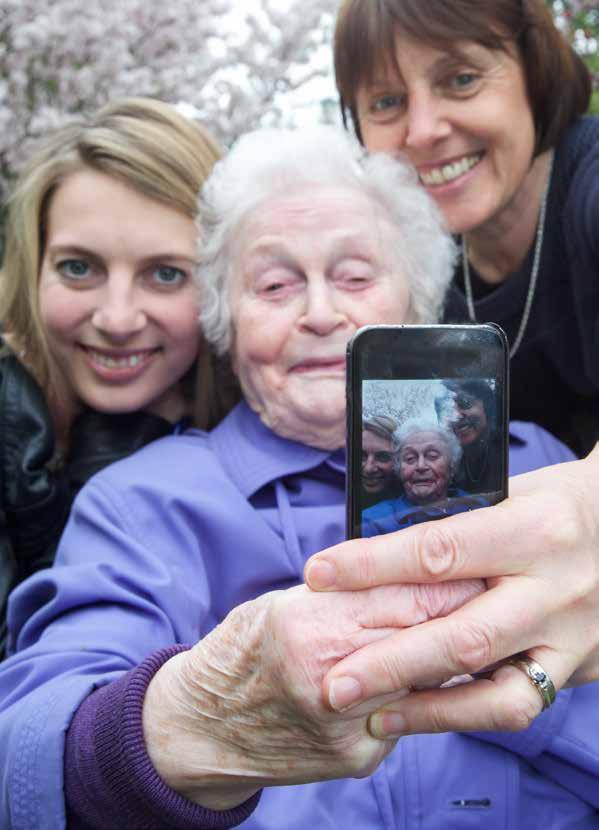
In both these circumstances the Carer Support Service would continue to work with them and signpost on to additional support services, for example grief counselling.
4.3 Continue to develop a range of support options for Carers, where the cared for person has high level needs, which allow choice and control in line with the proposed ‘right to a break’ within the National Care Service Bill
Monitoring performance is how we will know if what we are trying is working. The Carer Strategy Implementation Group are made up of Partners across the ACSCP, Children’s services, the third sector and Carers. They will monitor performance and delivery of the Strategy over the next 3 years. There will be 6 monthly reporting into the Strategic Planning Group and an Annual report to the Integration Joint Board.
If you require further information about any aspect of this document, please contact:
Aberdeen City Health & Social Care Partnership
Business Hub 8, 1st Floor North
Marischal College
Broad Street
Aberdeen
AB10 1AB
t: 01224 523237
e: ACHSCPEnquiries@aberdeencity.gov.uk
w: aberdeencityhscp.scot
t: twitter.com/HSCAberdeen